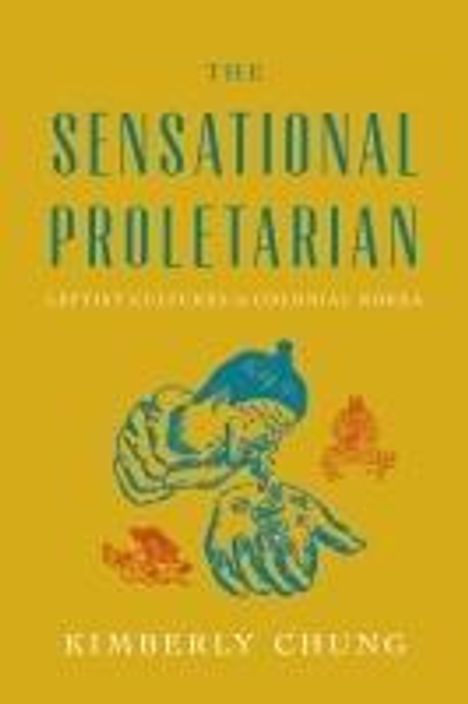Kimberly Chung: The Sensational Proletarian, Gebunden
The Sensational Proletarian
- Leftist Cultures in Colonial Korea
(soweit verfügbar beim Lieferanten)
- Verlag:
- Stanford University Press, 07/2025
- Einband:
- Gebunden
- Sprache:
- Englisch
- ISBN-13:
- 9781503640474
- Artikelnummer:
- 12075219
- Umfang:
- 256 Seiten
- Gewicht:
- 503 g
- Maße:
- 229 x 152 mm
- Stärke:
- 22 mm
- Erscheinungstermin:
- 15.7.2025
- Hinweis
-
Achtung: Artikel ist nicht in deutscher Sprache!
Klappentext
"Starving ghosts, anguished farmers, and grieving mothers. Floating heads, gaunt bodies, and masses of bodily fluids. Such are the visceral sensations, exaggerated affects, and suffering subjects that characterized leftist Korean cultural production in the 1920s and 1930s. In popular fiction, print cartoons, reportage, and other emergent forms of mass culture, scenes detailing the spectacular bodily harms endured by figures like migrant workers, tenant farmers, and everyday families proliferated. Yet at the time such representations were criticized as excessively grotesque and insufficiently political by leftist intellectuals, and they have subsequently been overlooked by scholars in favor of socialist realism and its dynamic proletarian heroes. The Sensational Proletarian, by contrast, focuses on these textual and visual representations to tell the story of how new affects and everyday experiences introduced by imperial capitalism and colonial modernity were mediated through the lower-class body. Kimberly Chung traces the emergence of "the sensational proletarian" as a central figure of colonial Korean print culture and reads its varied manifestations as emblematic of Korean efforts not only to grapple with modernity, imperialism, and capitalism, but to do so using the new political ideology and imaginary of Marxism. This book brings to light the centrality of sensational cultures in the development of class politics in Korea, an integral relationship that continues throughout modern and contemporary Korean cultural history"--


